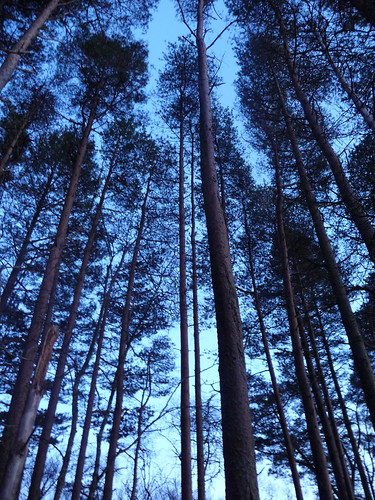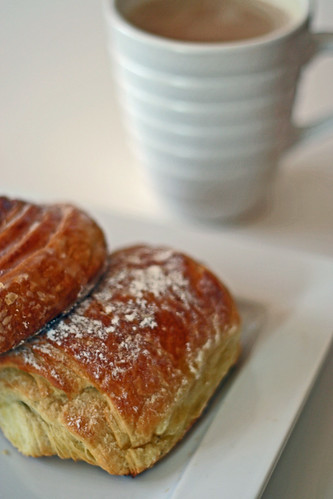 “Tell me what you eat, and I’ll tell you who you are,” Jean Anthelme Brillat-Savarin, 1825.I think that weekends on The Portmanteau should include a few diversions from the strictly literary, lately my Saturdays off usually consist of moodling around from one meal to the next, meals cooked slowly and leisurely, meals that draw out to fill most of the day, eaten in front of the fire with a film and a bottle of something cold and dry. So here's a mouth-watering, stomach-rumbling, lip-smacking post of gastronomical delights, both edible and poetical...bon appetit!
“Tell me what you eat, and I’ll tell you who you are,” Jean Anthelme Brillat-Savarin, 1825.I think that weekends on The Portmanteau should include a few diversions from the strictly literary, lately my Saturdays off usually consist of moodling around from one meal to the next, meals cooked slowly and leisurely, meals that draw out to fill most of the day, eaten in front of the fire with a film and a bottle of something cold and dry. So here's a mouth-watering, stomach-rumbling, lip-smacking post of gastronomical delights, both edible and poetical...bon appetit!The height of my love affair with cooking, fickle and intermittent as it has been, would probably be my first year at university, my salad days - others might have joined the CND, experimented with some half-hearted lesbianism or turned into mooncup evangelists. I became
Mrs Beeton with an overdraft.
A bright-eyed fresher, faced with the sudden freedom and opportunity afforded by the dreaming spires and public houses of a university town, will generally spend too much time marinating in watered-down beer to desire initiation into the dark arts of the kitchen. In time, a bout of scurvy and/or rickets will rouse the more practically minded to action. Saucepans and cheese graters will be bought from Ikea, discarded copies of
Creative Ways with Micropizza or
Boiling Water for Dummies – previously pressed into the hands of the feckless greenhorns by tearful mothers – will be grudgingly opened. Local fire stations will experience a sudden upsurge in call-outs.
But for this domestic innocent, suddenly provided with a shelf in a communal fridge and an ancient, rusting oven, it was a different story. I shall win friends and influence people with my dazzling array of baked goods, I told myself. Let them eat cake, my home-made, lovingly prepared cake, washed down with creamy pints of the milk of human kindness.
I began to bake bread on an almost daily basis: small quick-rise rolls served still hot and doughy with lavender honey and golden butter. I combated the cold with huge vats of soup made from chicken legs, root vegetables and handfuls of barley. I made buttered rum with cloves, spices and lemons to alleviate freshers flu. I baked buttermilk scones and jam tarts, gingerbread men and petticoat tails.
Look at me! I thought, I’m making things, I’m self-sufficient, a domestic goddess! I’m Juliette Binoche in
Chocolat, bringing charm and sensory delights to the humdrum lives of my Biochemistry and Engineering housemates. It didn’t last of course. Discovering that studying was not entirely optional nor my student loan entirely infinite curtailed my culinary odyssey. I accepted my inevitable decline into the typical undergraduate vending-machine connoisseur, burning the midnight oil by the barrelful, grazing from snack to snack.
Cooking creatively, for pleasure, is a luxury of course, most of the meals I make now are hastily thrown together, or consist of infinite variations on toast. But I can still look back in hunger. Nostalgia is such a huge part of enjoying food. As the late, great food columnist Laurie Colwin wrote: “When people enter the kitchen, they often drag their childhood in with them.” Think of
Laurie Lee’s ‘first bite of the apple’ in
Cider with Rosie, or
Proust with his tea-soaked madeleine, observing that “the smell and taste of things remain poised for a long time, like souls, ready to remind us.”

Chief among my own stomach-rumbling memories would be that first begged-for slab of millionaire’s shortbread, devoured in the long-gone Underground Café in Glasgow, a windowless cavern full of the gentle clinking of china and the murmur of gossiping mothers. And I can trace my ardent carnivorousness from a square Lorne sausage tucked inside a floury bap, eaten bleary-eyed and slightly green on the early morning ferry from Stornoway.
No writer traded off the natural greed of children better than Enid Blyton. I used to read and re-read her gluttonous descriptions of tuck boxes, midnight feasts and great farmhouse kitchen tables creaking under the weight of new-laid eggs, cold ham and tongue, potted meat, well-buttered toast and, naturally, lashings of ginger beer. Of course, during Blyton’s most prolific period of writing, rationing still dominated the nation’s larders. But the Famous Five still went happily munching on.
These days I’m mostly an armchair cook, reading cookbooks like novels, moveable feasts, fantasies of the kind of ambrosial idyll of uninhibited sybaritism my life would be were it not for lack of time, money and my congenital laziness. But the writer who never fails to awaken my inner epicure has to be
Nigel Slater – the dog-eared pages of my copy of his
Real Fast Food are stained with pan juices and sticky fingerprints, crumbs wedged between the most pored-over sections. Recipes for fish finger sandwiches and banana milkshakes nestle between instructions on how to make Hot Buttered Plums,
Wholewheat Pasta with Sausages, Mustard and Caramelised Onions (my favourite), or Purple Figs with Warm Honey (“A snack to share with someone special, in bed, on a cold winter’s night…Eat with your fingers, sucking the purple-red flesh from the skins.”)
That flush of pleasure when you cook something that people enjoy isn’t dissimilar to the experience of the writer when their work connects with someone. Both are acts of creation that are meant to be consumed, to be chewed over. I write like I cook, mixing words and sentences experimentally, adding a bit here and there, trimming the edges, attempting to cover up the mistakes with some fancy icing, never quite sure of the end result.
A recognition of the potential of cookery as art, as transformation; its aesthetic qualities, and its cultural importance, is central to the abiding literary fascination with the edible. The best writing about food revels in the sheer taste of words, the delectable roll of syllables on your tongue. Less modish gastropub marketing speak and chef ego-massaging: to write about food should be to meditate on hunger, its ultimate insatiability, the transience of its fulfilment - food for thought.
Some poems abut food for your delectation...The Simple Truth / Philip Levine //
Peaches / Peter Davison //
The First Green of Spring / David Budbill //
Wild strawberries / Helen Dunmore //
Blackberry Eating / Galway Kinnell (plus audio) //
Apples / Laurie Lee (plus audio) //
Linkage...Guardian Poster Poems about food //
A book you might enjoy //
More Nigel Slater yummynessMillionaire's shortbread pic by Lisa.












